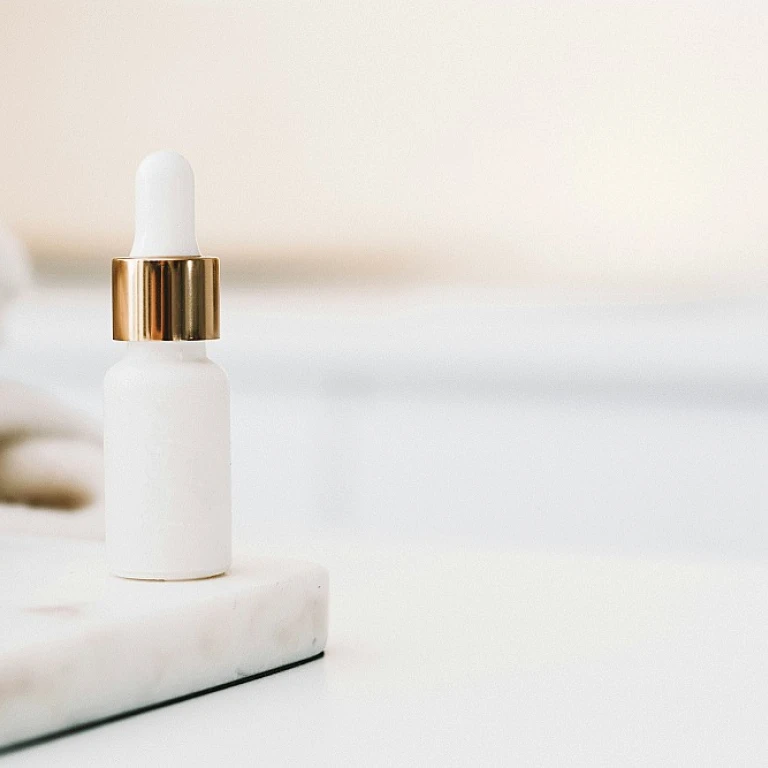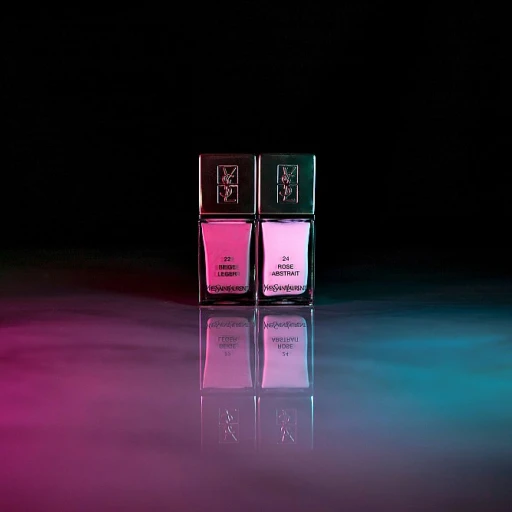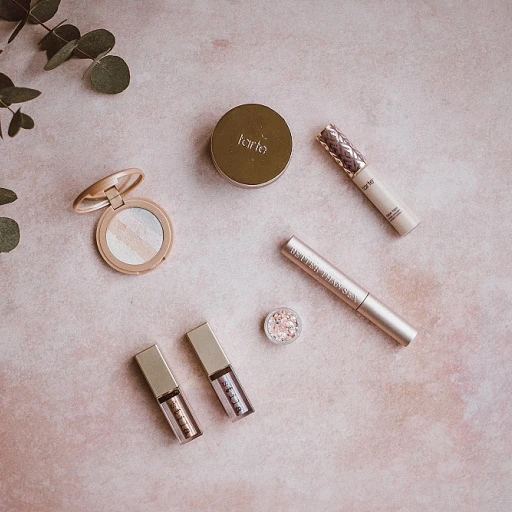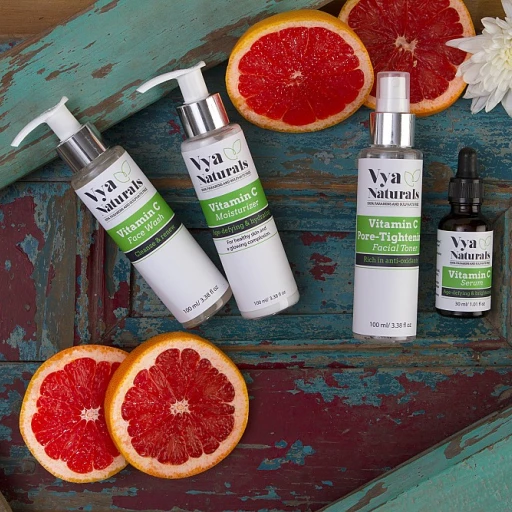-large-teaser.webp)
The history and origin of almond oil almond oil
Ancient roots of almond oil: a glimpse into its origins
The story of almond oil begins thousands of years ago, weaving through ancient cultures and civilizations. The first records of this luxurious elixir trace back to the Mediterranean region, where almonds were a prized commodity. In ancient Egypt, the revered queen Cleopatra was known to include almond oil in her beauty rituals. This oil's rich texture and mild, pleasing aroma made it a staple ingredient in her skincare routine, adding a touch of opulence to her legendary beauty regimen. As early as the 16th century, almond oil found prominence in the medical texts of Ayurveda, the traditional Hindu system of medicine. The texts highlighted its myriad health benefits, from nourishing the skin to promoting hair growth. According to Natalie Butler, RD, it remains a vital component in Ayurvedic treatments for its anti-inflammatory properties and ability to soothe skin conditions. Moving westward, the Greek and Roman societies also embraced almond oil, valuing it for its healing properties. Physicians of the time, such as Hippocrates and Galen, utilized almond oil for treating minor wounds, burns, and even digestive ailments. The rich history reflects its versatility and sustained appeal over centuries. Beyond just its uses in health and beauty, almond oil played a role in spiritual and religious ceremonies. In ancient Hebrew culture, almonds were a symbol of hope and renewal. This significance extended to the oil, used in sacred anointing oils and rituals, establishing its importance across various facets of life. The historical journey of almond oil is a testament to its enduring allure. From the palaces of Cleopatra to the medical halls of ancient Greece, this natural remedy has proven its worth time and again. In today's beauty industry, its legacy continues. As experts like Jillian Kubala, FNP, R.D., suggest, understanding this rich history can deepen our appreciation for what is often termed liquid luxury. Discover how the nutritional profile of almond oil contributes to its incredible benefits at liquid luxury.Nutritional profile of almond oil almond oil
Essential nutrients in almond oil: An in-depth look
Almond oil, especially the sweet kind, packs a punch when it comes to nutrients. You know, those tiny powerhouses that do so much good stuff for our bodies and skin? Let's check out what makes almond oil so darn special. Vitamin E One of the star components in almond oil is Vitamin E. Studies have shown that a single tablespoon of almond oil contains around 26% of the daily recommended intake of Vitamin E (source: Healthline). Vitamin E is a strong antioxidant that helps protect your skin from oxidative stress and premature aging. Fatty Acids Almond oil is rich in healthy fatty acids, including oleic acid (70%) and linoleic acid (20%) (source: Food Chemistry). These fatty acids are essential for keeping the skin moisturized and improving its barrier function. No more dry, flaky skin! Vitamin A Almond oil also contains Vitamin A, which is known for its anti-aging properties. It promotes cell turnover and rejuvenation, making your skin look fresher and younger. Other Nutrients Apart from these, almond oil offers a small amount of Vitamin K, along with other compounds like phytosterols and polyphenols, which are beneficial for skin health. According to 'The Golden Hour of Skincare', these nutrients work together to provide a natural glow to your skin. Minerals While it's not chock-full of minerals, almond oil still offers a trace amount of magnesium, phosphorus, and copper—all of which contribute to overall skin health. Experts Weigh In Natalie Butler, R.D., says, "The balance of fatty acids in almond oil makes it an excellent choice for moisturizing the skin without leaving it greasy." Jillian Kubala, FNP, emphasizes its Vitamin E content: "This nutrient is essential for protecting skin cells from damage and keeping your skin looking youthful." As you can see, almond oil is a nutrient-dense oil that offers a multitude of benefits for your skin's health. So next time you reach for a skincare product, you might want to look for this golden elixir in the list of ingredients.Health benefits of almond oil almond oil for skin
An elixir for enhancing skin health
Almond oil, particularly the sweet variety, has been a game-changer in the beauty industry, celebrated for its luxurious skincare properties. Loaded with vitamins that deeply nourish the skin, it has gained immense popularity among those seeking natural beauty solutions.
Rich in vitamins
Almond oil is a treasure trove of essential nutrients, including Vitamin E, which is renowned for its anti-aging properties. According to Healthline, Vitamin E acts as an antioxidant, protecting the skin from oxidative stress and UV damage. Additionally, this oil is rich in fatty acids, which moisturize and help maintain the skin’s elasticity.
Moisturizing abilities
If you’re battling dry skin, almond oil could be your saving grace. Its emollient properties allow it to soften and smooth the skin’s surface. Research published in the Journal of Cosmetic Dermatology highlights how the regular application of almond oil can alleviate conditions like eczema and psoriasis, thanks to its moisturizing and anti-inflammatory characteristics.
Promotes even skin tone
Many users swear by almond oil’s ability to improve skin complexion and tone. Its properties help reduce the appearance of scars and blemishes, ensuring a consistent skin texture. A study by NCBI found that almond oil might lighten undereye dark circles and even out skin tone due to its retinoid-like action.
Prevents stretch marks
Pregnant women and those with fluctuating weight often seek remedies for preventing stretch marks. Almond oil’s Vitamin E and fatty acids improve skin elasticity and hydration, reducing the likelihood of these unsightly marks. A study published in the International Journal of Pharmaceutical Sciences and Research supports its preventive action against stretch marks, especially during pregnancy.
Non-comedogenic properties
One of the most remarkable characteristics of almond oil is its non-comedogenic nature. It means it doesn’t clog pores, making it suitable for all skin types, but particularly beneficial for those with sensitive or acne-prone skin. This oil absorbs quickly, enhancing skin texture without a greasy feel.
Expert insights
Karen Cross, a renowned dermatologist, mentions, “Incorporating almond oil into daily skincare routines can yield visible results in a short period, particularly due to its high Vitamin E content and moisturizing properties.” Another expert, Natalie Butler, R.D., underscores its natural origin, noting that “Almond oil is a wonderful option for those wanting organic and effective skincare solutions.”
Conclusion
With such promising health benefits, it's no wonder almond oil has become a staple in luxury skincare. Its natural properties make it a versatile and effective option for enhancing skin health. For those looking to elevate their beauty routine with potent and natural ingredients, luxury bio-ingredient skincare like almond oil offers an opulent and nourishing solution.
Health benefits of almond oil almond oil for hair
Fighting dandruff and itchy scalp
Almond oil is packed with vitamins and minerals that make it exceptionally beneficial for maintaining a healthy scalp. Struggling with dandruff and an itchy scalp? The magnesium and calcium found in almond oil can help. According to Natalie Butler, RD, an expert in holistic health, massaging your scalp with almond oil can significantly reduce dandruff and dryness. The oil's natural anti-inflammatory properties soothe irritation while moisturizing the scalp, combating flakiness effectively.Promoting hair growth
Who doesn't dream of long, luscious locks? Sweet almond oil can be your go-to solution for hair growth. Rich in Vitamin E and fatty acids, this natural elixir helps prevent hair loss and promotes growth. A study published in the Journal of Cosmetic Dermatology found that applying almond oil on the hair and scalp boosts hair strength and resilience. It nourishes your follicles, making your hair grow faster and stronger. Jillian Kubala, MS, RD, highlights almond oil’s ability to improve hair texture, offering users silkier, more manageable hair.Repairing damaged hair
Using heat tools or chemical treatments often? Frequent exposure to these can leave your hair dry and damaged. Sweet almond oil can work wonders here too. The oil’s high protein content helps in restoring the cuticle layer and strengthening hair strands from the root. Karen Cross, a prominent hairstylist in California, swears by almond oil for repairing damaged hair. Apply it as a deep conditioning treatment and let it sit for 30 minutes to rejuvenate and bring back shine. For the best results, opt for unrefined or organic sweet almond oil, which retains more nutrients compared to refined options.Heat protectant
Going heavy on hairstyling tools like flat irons or blow dryers? They can cause significant heat damage over time. Using almond oil as a heat protectant can cut down on this damage. The fatty acids in almond oil form a barrier on your hair, protecting it from the high temperatures of styling tools. Apply a few drops of oil to your hair before using your favorite tools. The oil doesn’t weigh your hair down and leaves it shiny and smooth, making it a great natural alternative to chemical-based heat protectants.Adding shine and softness
One of the most immediate benefits you’ll notice when using almond oil is the added shine and softness it provides. Oils like almond oil seal in moisture, giving your hair that sought-after lustrous look. Natalie Butler, RD, mentions that almond oil not only conditions hair but also provides a natural sheen, giving your hair a vibrant, healthy appearance. Use a small amount and run it through your strands to reduce frizz and enhance suppleness, especially if you’re dealing with dry hair or split ends.Organic vs. refined almond oil: Which is better?
Organic vs. refined almond oil: which is better?
When it comes to almond oil, both organic and refined varieties offer unique benefits and come with their own set of considerations. Understanding the differences between them can help you make a more informed decision for your beauty routine and skin health.Understanding organic almond oil
Organic almond oil is derived from almonds grown without the use of synthetic fertilizers, pesticides, or genetically modified organisms (GMOs). This type of oil is typically cold-pressed, ensuring that the natural nutrients and beneficial compounds, such as vitamins and fatty acids, are preserved. Organic almond oil is often favored for its purity and natural goodness. According to research, organic almond oil retains higher levels of Vitamin E and essential fatty acids due to the minimal processing it undergoes (Jillian Kubala, R.D.). This makes it an excellent choice for skincare, especially for those with sensitive or allergy-prone skin.What refined almond oil brings to the table
Refined almond oil, on the other hand, undergoes additional processing which can involve heating and filtering to remove impurities. This process increases the oil's shelf life and removes the natural scent, making it more practical for culinary uses and commercial product formulations. However, the additional processing may reduce the levels of some nutrients. While refined almond oil may not be as nutrient-dense as its organic counterpart, it is still rich in monounsaturated fats and can provide moisture and nourishment to the skin and hair (Karen Cross, F.N.P.). Moreover, its lighter texture and longer shelf life often make it a convenient option for everyday use.Expert opinions and real-world examples
Natalie Butler, R.D., recommends organic almond oil for those looking to maximize their exposure to natural nutrients. She highlights its effectiveness in treating dry skin and reducing the appearance of stretch marks. "The purity of organic almond oil means you're getting the full spectrum of health benefits, minus the chemicals," she says. However, refined almond oil has its own fans as well. Many beauty enthusiasts appreciate its neutral scent and versatility. Refined almond oil can be found in numerous skincare and haircare products, providing essential hydration and smoothness without an overwhelming fragrance.Choosing the right almond oil for you
- Skin Care: Organic almond oil is ideal for those with sensitive or dry skin. It provides deep hydration and nourishment, thanks to its high content of Vitamin E and essential fatty acids.
- Hair Care: Refined almond oil can be a great option due to its lighter texture and neutral scent. It's perfect for everyday hair care routines and helps in reducing frizz while adding shine.
- Versatility and Shelf Life: Refined almond oil’s longer shelf life and versatility make it suitable for a wide range of applications, including cooking and as a carrier oil for essential oils.
- Purity: For those prioritizing purity and natural composition, organic almond oil is the way to go. Its nutrient density is unmatched by its refined counterpart.
How to incorporate almond oil almond oil into your beauty routine
Easy nighttime skincare routine
Before hitting the hay, wash your face with a gentle cleanser to remove the day’s dirt and grime. Pat dry with a soft towel, then apply a few drops of almond oil onto your face. Massage gently in circular motions, allowing it to soak into your skin. Sweet almond oil works wonders for dry skin and can help combat those fine lines while you sleep. Studies, like the one published by the Indian Journal of Dermatology, affirm that almond oil is great for moisturizing and keeping the skin looking youthful.
Boost your morning routine
In the morning, after your regular face wash, add a hint of almond oil to your moisturizer. This can be especially useful during the winter months when the skin tends to get drier. For those with oily or acne-prone skin, adding just a small drop can go a long way in balancing oil production and providing essential hydration. The vitamin E in almond oil also offers a layer of protection against the harmful rays of the sun.
Soothing your body post-shower
Once you’ve toweled off after a warm shower, while your skin is still slightly damp, spread a thin layer of almond oil over your body. This is particularly good for areas prone to stretch marks, like your hips and belly. Thanks to its rich content of fatty acids, using almond oil has shown to improve skin elasticity and hydration.
Nourish your hair
Has your scalp been feeling a bit dry? Rub a small amount of almond oil into your scalp and hair roots before shampooing. Leave it in for about 30 minutes, then rinse thoroughly. Regularly using almond oil can help reduce dandruff and breakage. It’s also great for adding shine and softness to your locks. Research by dermatologist Jillian Kubala, RD, supports that almond oil is beneficial in preventing split ends.
Natural makeup remover
Sick of those harsh chemicals in store-bought makeup removers? Almond oil is a fantastic, all-natural alternative. Its slick texture easily lifts makeup from your skin without stripping away its natural oils. Simply soak a cotton pad with almond oil and gently wipe over your face, rinsing with warm water afterward. Even waterproof mascara doesn't stand a chance.
Eye care regime
Apply a few drops of almond oil around your eyes before bed and tap it in gently. This soft and light oil doesn’t smell overwhelming and works overnight, helping to lighten dark circles and reduce puffiness. Consistent use can provide a noticeable difference, a trick even health experts like Natalie Butler, RD, endorse.
Expert insights on almond oil almond oil
Expert quotes on the efficacy of almond oil
Almond oil has many advocates within the beauty and wellness community. Natalie Butler, R.D., L.D., a well-known nutritionist, has praised almond oil's versatility: "Almond oil is rich in Vitamin E, fatty acids, and other essential nutrients that make it perfect for nourishing both skin and hair. It's a go-to for anyone looking to add a natural and effective product to their routine." Her recommendation is backed by various studies pointing to the significant health benefits almond oil offers, from moisturizing dry skin to improving hair strength.
Scientific studies confirming benefits
Scientific research also supports the use of almond oil for skin and hair health. A 2010 study published in the 'Journal of Cosmetic Dermatology' found that topical application of sweet almond oil can prevent structural damage caused by UV irradiation and slow down the photoaging process. Furthermore, another study highlighted in the 'Indian Journal of Dermatology, Venereology, and Leprology' reported that almond oil could significantly improve the skin's texture and overall barrier function. These findings illustrate why almond oil is so often recommended by skincare experts and health professionals alike.
Why dermatologists recommend almond oil
Dermatologists like Karen Cross frequently recommend almond oil for its hydrating and soothing properties. According to Cross, "Almond oil is incredibly effective for treating dry skin conditions, thanks to its emollient properties to soften and rejuvenate the skin." She also notes that its hypoallergenic nature makes it suitable for various skin types, including sensitive skin.
Real-world examples and case studies
Jillian Kubala, FNP, R.D., shares a compelling case study showing almond oil's positive impact. "I had a patient with extremely dry and flaky skin who struggled to find a solution that didn't involve harsh chemicals. Upon incorporating organic sweet almond oil into her skincare routine, we noticed an improvement within a matter of weeks. Her skin became softer, more hydrated, and more resilient against environmental stressors." This is just one of many success stories showcasing the transformative potential of almond oil.
Where to buy high-quality almond oil almond oil
Finding the best sources for high-quality almond oil
Securing top-notch almond oil can make all the difference in your skin and hair routine. To ensure you're getting the best, look for almond oil that is cold-pressed and unrefined. Cold-pressed oils retain the most nutrients and beneficial fatty acids since they aren't subjected to high heat.
Top brands and their offerings
Brands like Spectrum Naturals, Now Foods, and Praan Naturals are known for providing high-quality almond oil. For instance, Praan Naturals offers both refined and unrefined options, giving you flexibility depending on your preference and need.
What to look for when shopping
When shopping, always check the label for terms like 'cold-pressed,' 'unrefined,' and 'organic.' These indicators usually promise a product that retains its natural goodness. Also, be wary of additives that can dilute the oil's effectiveness.
Buying locally versus online
You have the option to purchase locally or online. Local health food stores often stock high-quality almond oils, allowing you to evaluate the product firsthand. However, online platforms like Amazon or specialty websites often have a more extensive selection, sometimes at better prices. Make sure to read reviews and check for third-party testing to confirm the product's quality.
How much should you expect to pay?
The price can vary significantly based on the quality and origin of the almond oil. Generally, a 4-ounce bottle of high-quality almond oil ranges from $10 to $20. Organic and cold-pressed versions tend to be on the higher end of the price spectrum but are worth the investment if you're looking for the best.
Expert recommendations
Experts like Karen Cross, a skincare specialist, emphasize the importance of choosing cold-pressed and unrefined oils for their maximum benefits. Meanwhile, nutritionist Natalie Butler suggests looking for oils with no additives to avoid potential skin irritants.
Buying high-quality almond oil doesn't have to be complicated. By following these guidelines, you'll be well on your way to finding a product that enhances your skincare and haircare routines effectively.





-large-teaser.webp)

-large-teaser.webp)

-large-teaser.webp)


